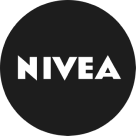If you thought that the only way to find influencers was by spending hours scrolling through social media feeds and Google, we’ve got great news for you.
Enter social listening tools!
Apart from letting you know what is being said about your brand on websites and social media, they are in fact, one of the top 3 most useful ways for companies to find influencers.
? Read Media Monitoring: The Ultimate Guide
But let’s start with a brief introduction to social listening tools.
How to Use Social Listening Tools
Most people use social listening tools only to monitor their marketing campaigns and see whether someone is tweeting bad things about their company.
But that is just the start of what social listening tools can do.
They are essentially giant, real-time website crawlers – much like Google. They visit pages and notify you when they find a word or hashtag that matches what you input. In Determ, we visit more than 100 million online sources in real time. This means Twitter posts, random blogs from all corners of the world, news websites, Facebook pages, TikTok mentions, forums, and a plethora of other sources.
So when you write e.g. Acme Company, Determ visits 100 million different URLs and you get a list of all the mentions of Acme Company listed in your feed.
The biggest problem is that most people don’t take it anywhere from there. But there is a range of metrics available within the reports that you can utilize for your new marketing campaigns or to tweak your existing efforts. And to top it all, you can find influencers within these reports in a matter of seconds.
I’m not here to tell you what’s wrong. But I can tell you that you are losing a significant advantage over your competitors if you are not doing it. Since rarely anyone does, the playing field is still unplagued by the “marketers ruin everything” curse.
Now, to (finally) get to the point, here are 3 things you should do to find influencers relevant for your industry.
3 Ways to Find Influencers Using Social Listening Tools
Find influencers mentioning your brand
When Elena, with 300 Twitter followers, mentions you in a post, it is not just another mention you should ignore because it doesn’t come from a celebrity. Maybe it’s not essential but dig deeper. Maybe she’s a blogger with a prominent web audience, who is just not that big on Twitter. The same goes for everyone who mentions you. Explore their background a bit to see if they usually write about topics connected to your brand or industry.
Some people can also recommend your product in a specialized forum; you won’t know it unless you use a social listening tool. Social listening is an excellent way of finding these forums. In Determ, we have several influencer dashboards that list influencers on social media and websites who have mentioned your brand in the last 3 months.
Read Turning the Small Influencer into a Big Catch
Find influencers mentioning your competitors
You should vigorously be monitoring your competitors as well. Not only will social media monitoring enable you to know what they are up to, it will also give you insight into people posting about them. For example, they might be already mentioned by a host of influencers who is spreading the word about them.
While you don’t want to work with them if they are already collaborating with your competitors, a lot of the time, these people might just be reviewing the product or even mentioning the competitor for them to notice the influencer or just mention competitor in passing. You can use that to your advantage. For example, many beauty bloggers will use MAC cosmetics for their vlogs but can also be open to other brands.
Find influencers mentioning your niche
Most of the time, influencers won’t be writing about you simply because they haven’t come across your brand, and sometimes they won’t even be writing about your competitors. For example, our target group (marketers and PR people) writes more about industry topics than about media monitoring tools. However, they do write about problems they encounter with measuring marketing campaigns or challenges of social media – and these are all topics naturally aligned with our brand.
So we monitor a lot – and I mean a lot – of keywords like #PRfail or #PRmeasurement or “influencer marketing”.

There are a lot of influencers who behave similarly in any niche. Sometimes other, non-competing brands will have a popular blog. If you sell sunglasses, maybe your next influencer fit will not write about sunglasses. But they will be writing about a similar topic, like bikinis.
Consider which phrases go hand in hand with your brand and might be used by your influencers. If you need practical tips on finding them, check out this blog.
This is merely a short introduction, of course. If you need more details, schedule a demo with our team or talk to us via chat.



